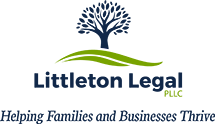Divorce is rarely simple. When two people’s lives are intertwined—physically, emotionally, and legally—separating the individual…
Does My Trust Guarantee the Avoidance of Probate?
Planning ahead has obvious benefits. Whether you’re planning a vacation or researching for a job interview, it’s always smart to outline your priorities and anticipate potential challenges that may arise. Planning your estate has similar benefits. With plans clearly established, your wealth and assets are protected should you pass away or become incapacitated. It’s important to be aware, however, that simply meeting with an attorney and signing a trust does not mean your estate planning process is complete. Without properly funding your trust, your assets could still be forced through the probate process.
Understanding the Process
While the term seems scary, probate is a relatively simple concept: it’s a legal procedure that transfers assets from the deceased to their heirs or beneficiaries. When a will doesn’t exist or does not clearly outline a person’s plans for their estate after their passing, a judge will need to give legal permission for their assets to be passed on to their heirs. If a will does exist, the court is involved to ensure the Personal Representative administers and distributes the estate according to the terms of the will. This process, called probate, is more common than you might expect. Not only does the probate process invite the judge to become involved in the distribution of the assets, it can also be a very public, time consuming, and expensive process.
Depending on the value of the assets to be distributed through the probate process, some jurisdictions have a simplified probate proceeding. However, this can still be a time consuming and public proceeding.
Not every asset goes through the probate process. Anything owned solely by the deceased, like a home or vehicle, will be subject to probate. Any asset that has a surviving co-owner or beneficiary designation will transfer to the named individual automatically upon your death. Property held in a living trust is also exempt from the probate process because the assets are deemed to be owned by the trust, not you.
Avoiding Probate
Probating a will can be stressful. In the days and weeks following the loss of a loved one, the last thing family members want is a legal battle for their inheritance. In especially large estates, property may need to be professionally appraised and inventoried. Debts and taxes will also need to be paid before the estate can be fully settled. The attorneys who handle these tasks will also take a chunk of the money for their involvement in the administration of the estate. Also, since probate is a matter of public record, there is a lack of privacy to consider. It’s no wonder so many people hope to avoid probate altogether.
One of the most common ways to avoid probate is to use a revocable living trust to protect your assets. In order for the trust to keep your assets out of probate, the assets have to be funded into the trust while you are alive. Failure to complete this step will lead your family to probate court, even if it is just to have the assets transferred to the trust.
If you have successfully funded your trust, your assets will be administered as you have directed in your trust once you pass away, without court involvement. The result is the transfer of your assets easily, timely, and privately.
If you have questions about funding your trust, please give us a call. We can review your assets and ensure that everything is in place so your family can have a smooth administration, without court involvement. When it comes to the future, leave nothing to chance.



